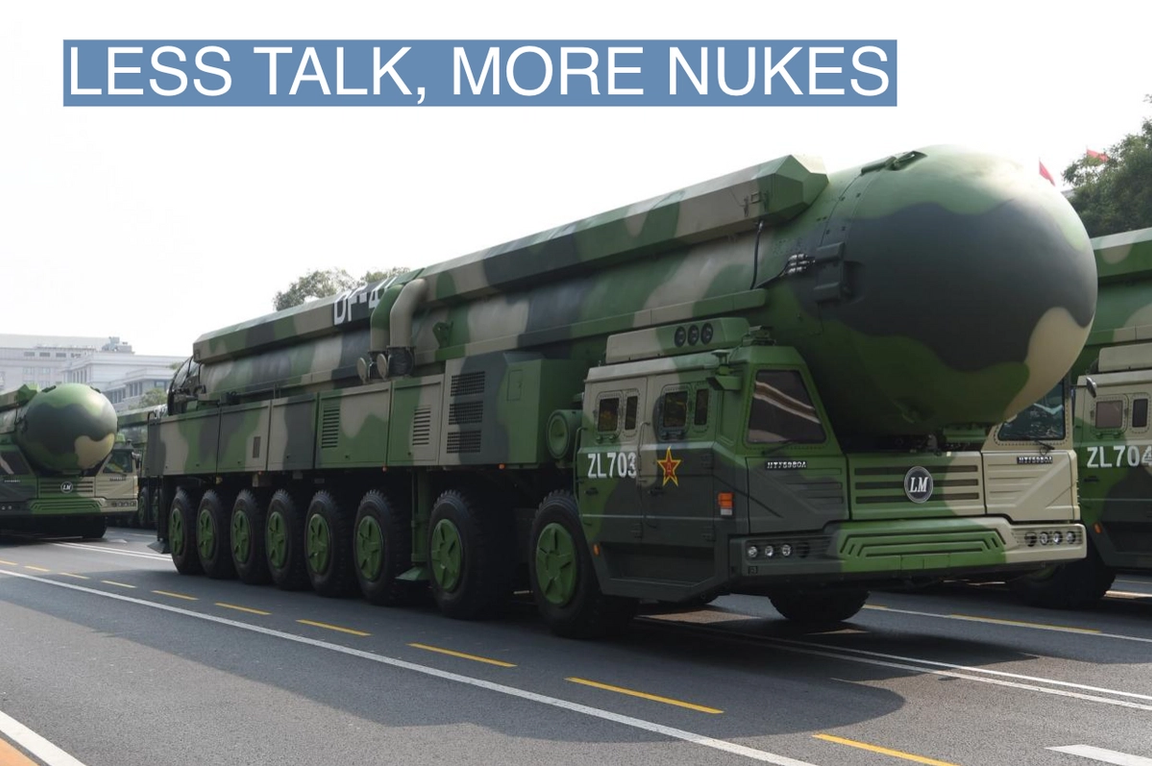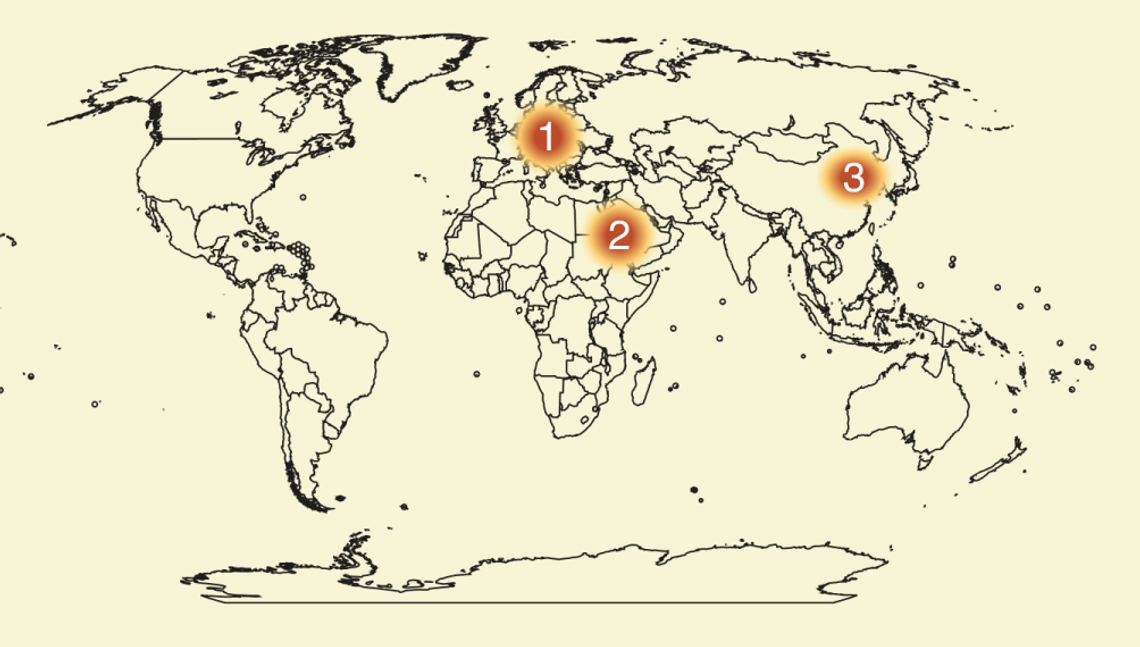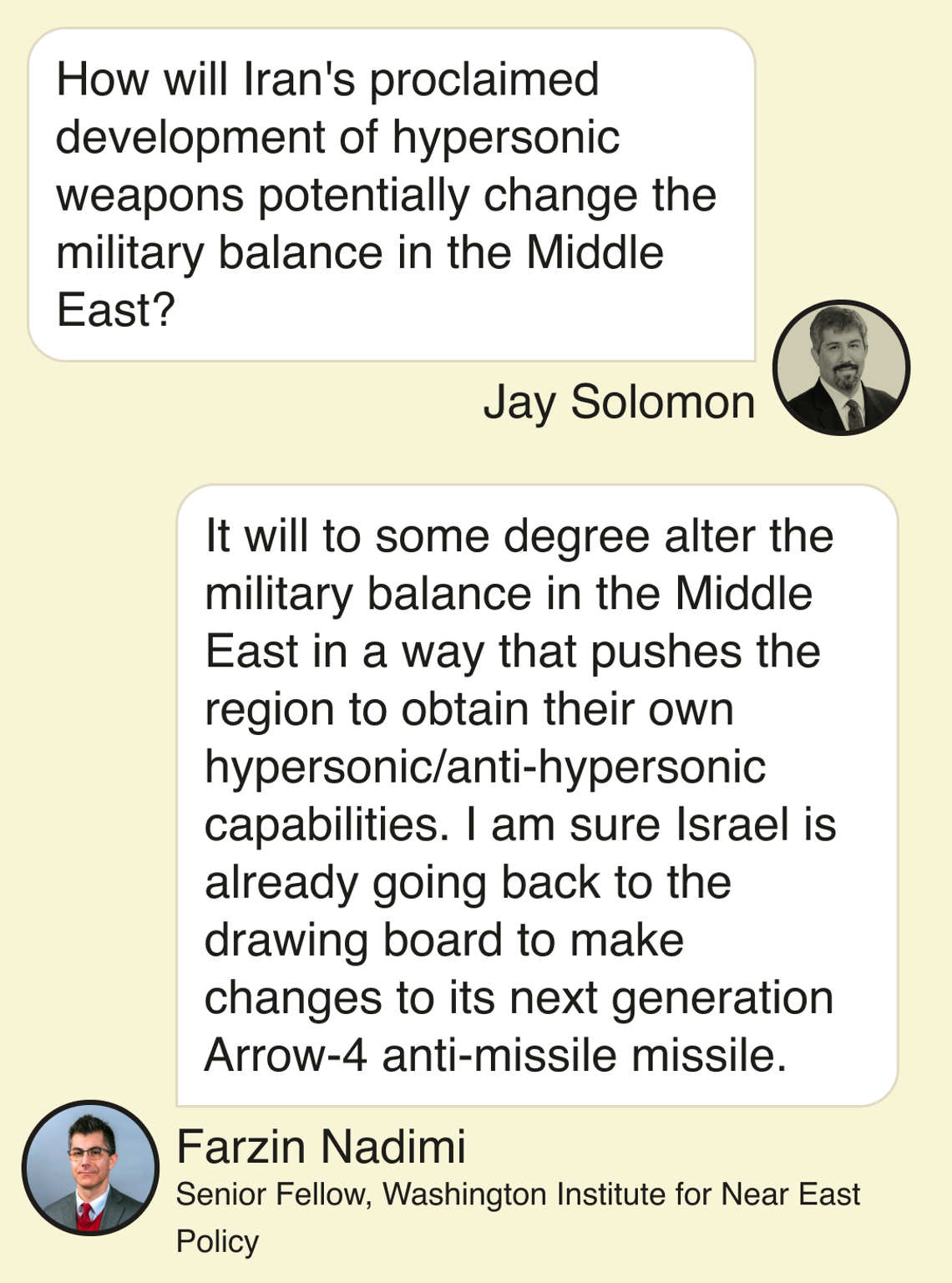 Xinhua/Xia Yifang via Getty Images Xinhua/Xia Yifang via Getty ImagesTHE SCOOP China and Russia are rejecting a U.S. offer to hold “unconditional” nuclear arms control talks, a move that risks further fueling global proliferation. U.S. National Security Advisor Jake Sullivan warned in a major address last Friday that the post-Cold War agreements guarding against global nuclear proliferation were fraying and invited Beijing and Moscow to resume direct discussions on the issue. “We now stand at what our president would call an ‘inflection point’ in our nuclear stability and security,” he said. But the Chinese government told Semafor in its first direct public response that it wasn’t open to talks for the foreseeable future. “China’s nuclear strength is far from being on par with the U.S. and Russia. The time is not ready yet for [Beijing] to join the nuclear arms control negotiations proposed by some,” Washington embassy spokesman Liu Pengyu said in a statement. “China upholds a defensive nuclear policy. It has promised not to be the first to use nuclear weapons and has maintained nuclear strength at the minimum level for national security needs,” Liu added. Russian President Vladimir Putin’s government also dismissed Sullivan’s June 2 overture, warning that no engagement on arms control can occur while the U.S is pursuing a “hostile” policy towards the Kremlin in Ukraine. JAY’S VIEW The lack of nuclear talks between these three global powers risk plunging the world into an uncontrolled arms race that threatens both global stability and specific U.S. military interests. The Nuclear Non-Proliferation Treaty was designed to restrict atomic weapons to permanent members of the U.N. Security Council who would then gradually work to thin out their stockpiles. It was not entirely foolproof; India, Pakistan, and North Korea have all acquired the bomb over the years, while Israel is widely believed to have as well. But the old framework risks becoming functionally dead, in part, because Beijing and Moscow appear more intent on modernizing their own arsenals than preventing other nations from acquiring their own. China is currently on pace to increase its stockpile of warheads from around 400 today to nearly 1,500 by 2035, Sullivan said in his speech. The Kremlin, meanwhile, has pulled out of the last arms control agreements of the post-Cold War era, such as New START, while using nuclear intimidation tactics in unprecedented and dangerous ways. This includes Putin’s deployment of nuclear weapons in Belarus and threats to use tactical nuclear weapons against Ukraine’s military forces The consequences for proliferation could be grave. Iran and North Korea have been making serious advances in their own nuclear programs. Meanwhile, countries that have long relied on the U.S.’s nuclear umbrella for protection, such as South Korea, Japan, and Saudi Arabia, are questioning whether it’s time to create their own nuclear infrastructure, out of fear that America’s deterrence capabilities may no longer be enough to keep them safe. The White House is continuing to pursue diplomacy to stem this tide but finding few takers. In addition to last week’s offers to China and Russia, the White House has repeatedly, and so far unsuccessfully, sought to engage Tehran and Pyongyang in direct disarmament talks. Sullivan raised the prospect last week of using the United Nations Security Council as a forum to put in place new guardrails against global nuclear proliferation. But there’s little reason to expect this effort to be any more fruitful, given Beijing’s and Moscow’s vetoes over the council’s actions. Russia and China’s nuclear buildups could also give them more direct military leverage against the U.S. and its allies. Both countries, of course, already have large nuclear arsenals capable of laying waste to far-off cities. But numbers and delivery systems still matter. For instance, Beijing is only now beginning to build out its own Triad of nuclear-equipped subs, land-based missiles, and bombers, as the U.S. maintains. That would give it more protection against a nuclear first-strike by Washington, by essentially guaranteeing it could retaliate with an atomic blow of its own. Having its own Triad as an insurance policy could in turn give China more confidence to launch conventional military operations, such as an invasion of Taiwan, much the way Russia was able to storm Ukraine without fear of being counterattacked by the U.S. or Europe. The most worrying dynamic, nuclear strategists say, is the prospect of China and Russia working together on nuclear matters. This March, Russia announced the sale of nuclear fuel to the China Atomic Energy Agency, providing Beijing the materials to build more bombs. In the coming decades, the two countries could have more deployed nuclear weapons together than the U.S., strategists say. THE VIEW FROM THE WHITE HOUSE A large number of Republican lawmakers and strategists have argued that the U.S. will need to grow its own nuclear arsenal in order to compete with Russia and China. But Sullivan pushed back strongly last week against the idea. “I want to be clear here — the United States does not need to increase our nuclear forces to outnumber the combined total of our competitors in order to successfully deter them.” Instead, he called for the replacing and modernizing of the U.S.’s current nuclear Triad. Sullivan also said the U.S. is developing conventional weapons and technologies that will allow Washington to maintain a military advantage against Chinese and Russian nuclear advances. He specifically cited hypersonic weapons, and space and cyber capabilities that are being developed. “These modernization efforts will ensure our deterrent capabilities remain secure and strong as we head into the 2030s — when the United States will need to deter two near-peer nuclear powers for the first time in its history.” ROOM FOR DISAGREEMENT China has accused the United States itself of accelerating nuclear proliferation through AUKUS, its recent deal with Britain and Australia to build a fleet of new nuclear powered submarines for the Pacific, as well as other cutting-edge military technologies. On Wednesday, in what appeared to be an implicit rebuke to Sullivan’s speech, Chinese Foreign Ministry spokesman Wang Wenbin called on the three countries to “stop acts of nuclear proliferation such as their nuclear submarine cooperation, stop undermining the international nuclear non-proliferation system by applying double standards, and stop brewing storms over the Pacific Ocean.” NOTABLE | 






